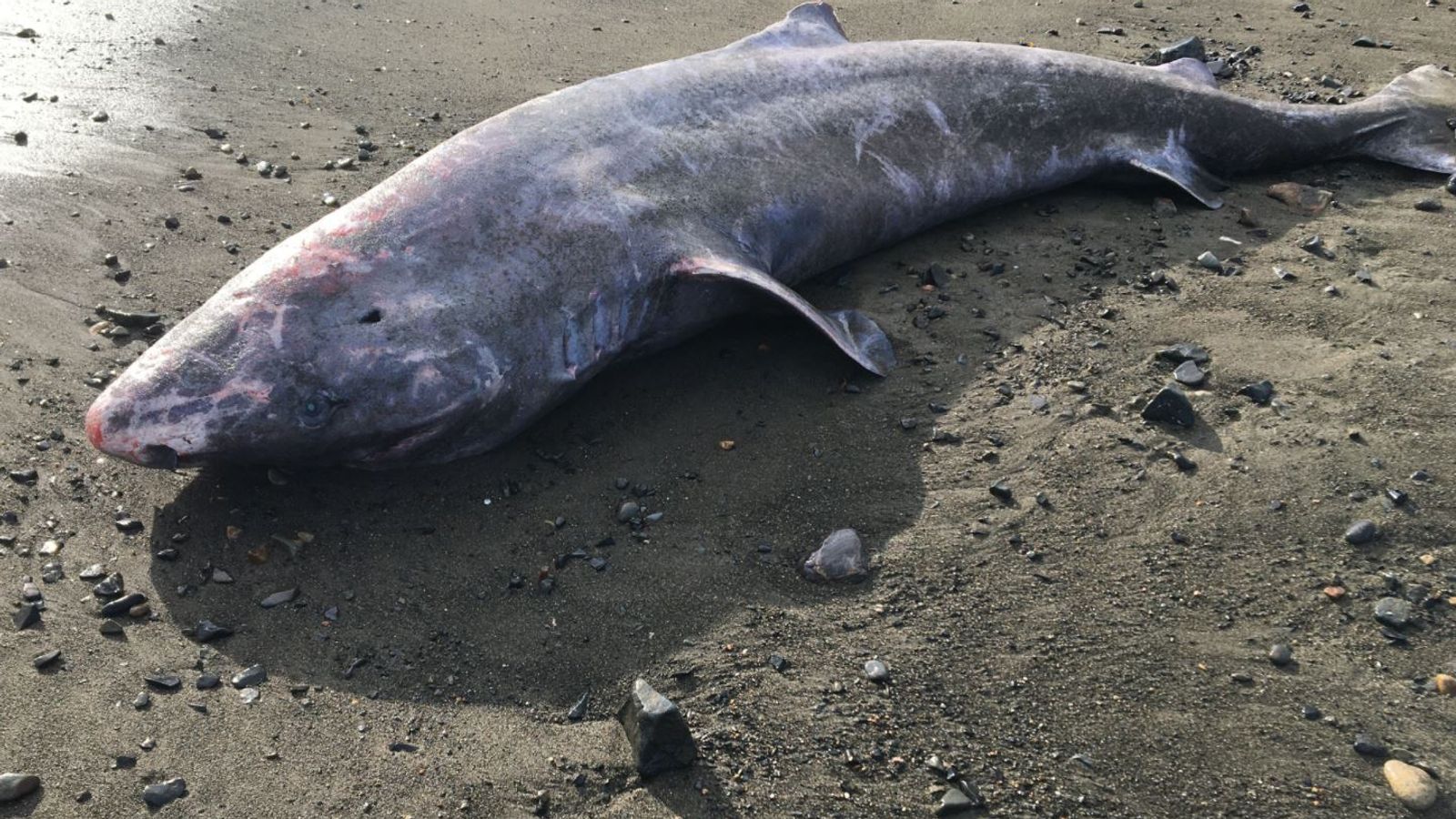A century-old shark found washed up on a Cornish beach died from meningitis, a post mortem has found.
The Greenland shark is incredibly rare, with the species able to live to more than 400 years old.
It means the female found just outside Newlyn Harbour in mid-March is still considered “juvenile” by marine biologists.
How a public plea and slice of coincidence are helping British scientists uncover shark’s secrets
Very little is known about the species, which usually live more than 2.5m below the surface of the Arctic and North Atlantic oceans, and the autopsy is the first of its kind undertaken in the UK.
It is just the second Greenland shark to be recovered from UK waters.
Measuring 3.96m long, the shark had damage to her fins and silt in her stomach, which suggested she may have been alive when she stranded.
COVID-19: Omicron symptoms less severe than Delta variant, study concludes
Sabina Nessa: Murdered schoolteacher ‘oblivious’ to killer behind her before being struck 34 times over the head in a London park
Turning back the clock: Human skin cells de-aged by 30 years in trial
While it is the first report of meningitis in the species, scientists said it is too early to link the disease to man-made stressors in the environment, such as ocean pollution.
The post-mortem was conducted by the Cornwall Marine Pathology Team, which is part of the Zoological Society of London’s (ZSL) Cetacean Strandings Investigation Programme (CSIP).
Veterinary pathologist James Barnett, of the Cornwall Marine Pathology Team, said the brain was “discoloured and congested”, while the fluid around the brain was cloudy.
A strain of bacteria was isolated from the fluid and is thought to have been the cause of the meningitis.
“The shark’s body was in poor condition and there were signs of haemorrhage within the soft tissue around the pectoral fins which, coupled with the silt found in her stomach, suggested she may well have live stranded,” Mr Barnett said.
“As far as we’re aware, this is one of the first post-mortem examinations here in the UK of a Greenland shark and the first account of meningitis in this species.”
Rob Deaville, project lead for the CSIP, said: “This unfortunate and extraordinary stranding has allowed us to get an insight into the life and death of a species we know little about.
“Discovering that this shark had meningitis is likely a world’s first, but the significance of this in terms of any wider stressors is unknown.
“Ultimately, like most marine life, deep-sea species such as Greenland sharks may also be impacted by human pressures on the ocean but there is not enough evidence at this stage to make any connections.”
The strandings programme investigate every instance of cetaceans, whales, dolphins and porpoises, washing up on UK shores, as well as strandings of marine turtles and basking sharks.
Since 1990, there have been 17,000 reported cetacean strandings, and almost 4,500 post mortems conducted.
A research paper on the Greenland shark will be published in due course.





